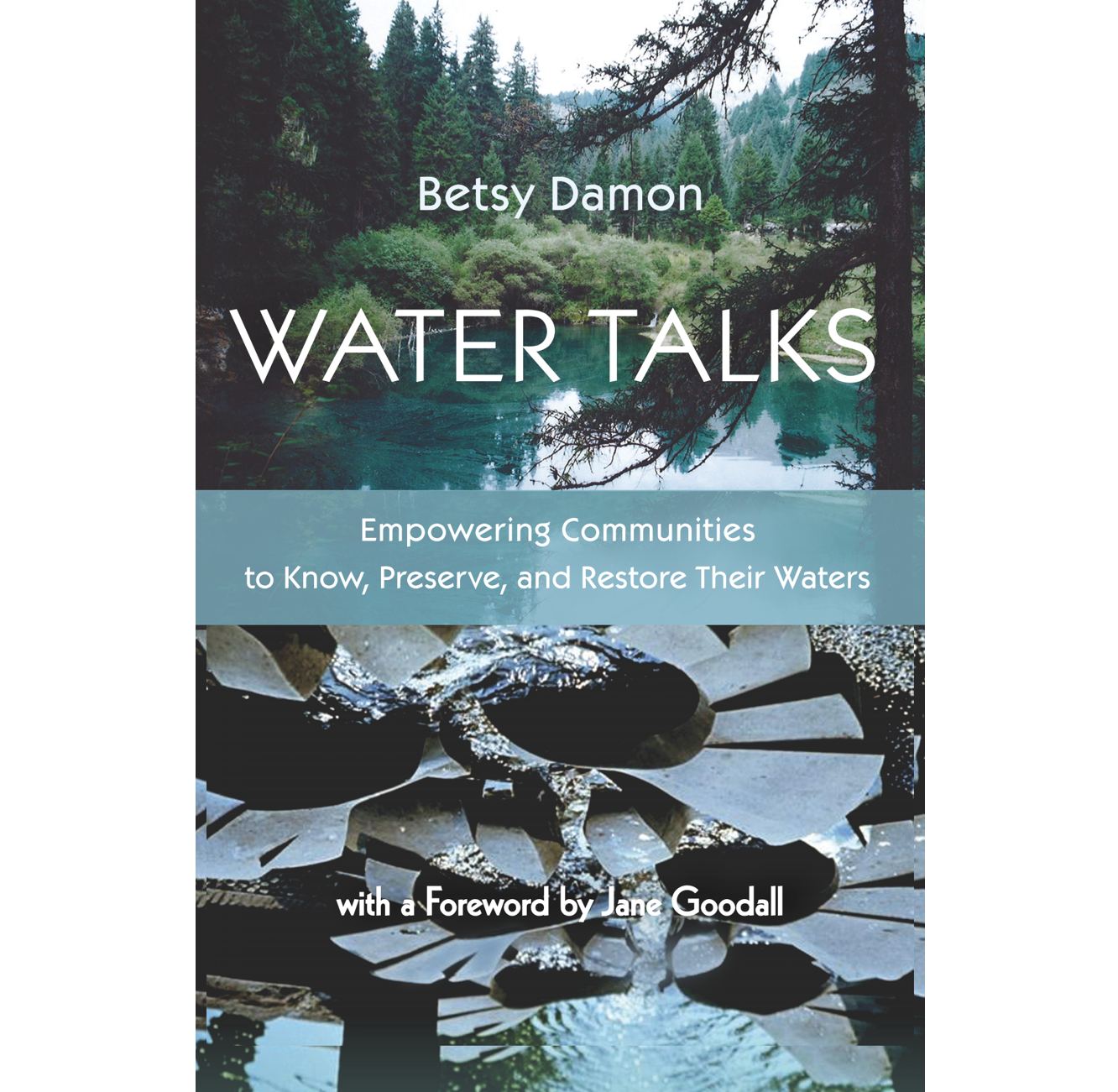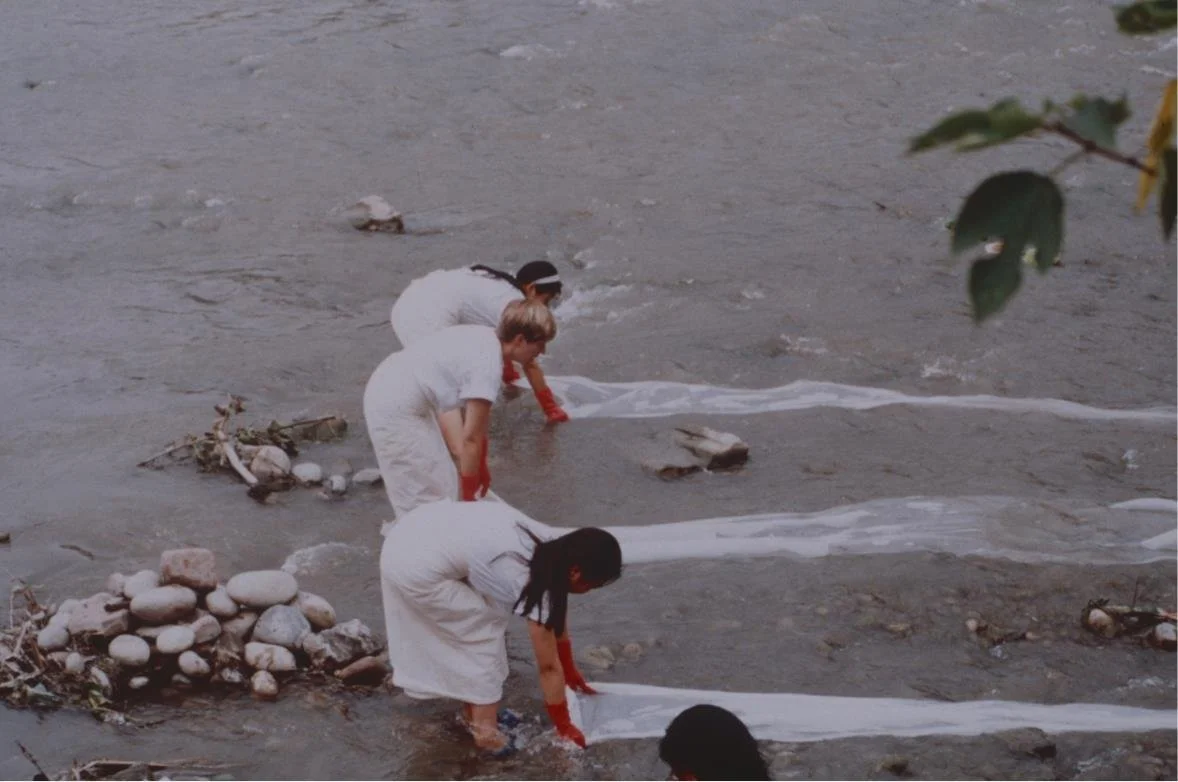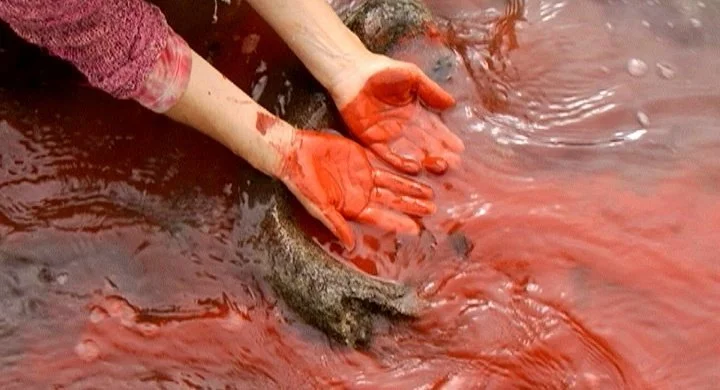Betsy Damon (American, b. 1940) is water artist whose public work and living systems have received widespread acclaim. She created important feminist ritual performances in public space in New York: 7,000 Year Old Woman (1976-79), Blind Beggar Woman (1979-81), A Rape Memory (1981-83), The Shrine for Everywoman (1985-1990), and A Mediation With Stones for the Survival of the Planet (1983-89), and exhibited at P.S.1 in the 1980s. The installation The Memory of Clean Water shown at the Everhart Museum, traveled to many museums, 1986-91. At the age of 50, Damon changed the focus of her art to center on water, its conservation and protection, and its impact on the society. Among her large scale projects mobilizing art, science and communities around local water problems, are those on the Cheyenne River, ND (2019), in Larimer, PA (2012-2016), Olympic Forest Park, Beijing, China (2002-06), for the Beijing Bureau of Hydraulic Research & Engineering, China (2001-2003), and Living Water Garden, Chengdu, China (1996).
Eliza Evans experiments with sculpture, print, video, and textiles to identify disconnections and absurdities in social, economic, and ecological systems. The initial parameters of each work are carefully researched and then evolve as a result of interaction with people, time, and weather. Evans was born in a rustbelt steel town and raised in rural Appalachia. She currently splits her time between New York City and the Hudson Valley. Her work was exhibited at the Chautauqua Institution, Chautauqua, NY (2019), Edward Hopper House Museum, Nyack, NY (2019), Chashama Sculpture Field, Pine Plains, NY (2018), BRIC, Brooklyn (2017), and Purchase College, Purchase, NY (2017). Residencies include the National Center for Ecological Analysis and Synthesis, UC Santa Barbara (2020), Bronx Museum AIM, and Franconia Sculpture Park, Shafer, MN (both 2019). Evans holds an MFA from SUNY Purchase College in visual art and a Ph.D. in economic sociology from the University of Texas at Austin.
Carla Maldonado (Brasilian, b. 1986) is a multimedia artist, working in photography, film and installation. Her work responds to socio-political issues; patriarchy and the environmental crisis, and explores the struggle of progressive movements in Bolsonaro’s Brazil, and her immigrant experience in Trump’s era U.S. Maldonado's intuitively observational process is based on photographic and video documentation of environments she navigates and people she encounters – focusing on rebels, misfits and revolutionaries. She showed at the Satellite Art Show in Miami and Brooklyn; Film Fest at the Farm, Rhinebeck, NY; School of Visual Arts, NYC, SoMad Studio, NYC (all 2019); Barcelona Planet Film Festival, Spain (2018); and The Knockdown Center, Brooklyn (2017). She has BFA in Fashion Design from Senai Cetiqt, Rio de Janeiro, 2007; and MFA in Photography, Video & Related Media, SVA in New York, 2019. Maldonado lives and works in New York City and is currently AIM Fellow at The Bronx Museum.
Eleanor Heartney is an art critic and author and has written extensively on contemporary art issues for many publications, including Art in America, Artpress, Artnews, Art and Auction, The New Art Examiner, the Washington Post and the New York Times. Her books include Critical Condition: American Culture at the Crossroads, Postmodernism, Defending Complexity: Art Politics and the New World Order, Postmodern Heretics: The Catholic Imagination in Contemporary Art, Art and Today and Doomsday Dreams: the Apocalyptic Imagination in Contemporary Art. She is a co-author of After the Revolution: Women who Transformed Contemporary Art, and The Reckoning: Women Artists of the New Millennium. She is past President of AICA USA, the American section of the International Art Critics Association. Her awards include the College Art Association’s Frank Jewett Mather Award and the French government’s Chevalier dans l’Ordre des Arts et des Lettres.
MORE ABOUT THE EXHIBITION
Image: Betsy Damon (American, b. 1940), The Memory of Clean Water, 1985, mixed media: paper pulp, grass, minerals ©Betsy Damon. Courtesy of the artist















